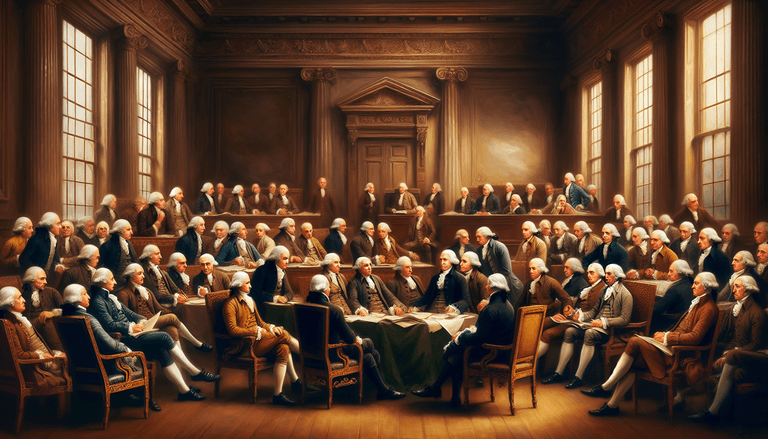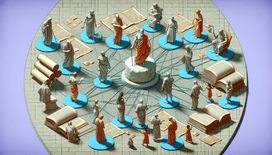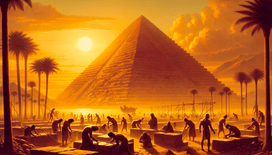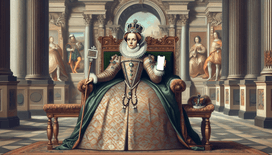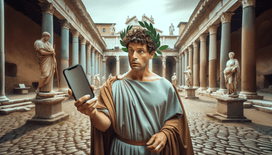Ah, the American Revolution! A time when powdered wigs were en vogue, tea was something you tossed in the harbour, and colonies wanted a bit more than just a postcard from ol' King George. But what if, amidst the cries for liberty and taxation debates, the Continental Congress had a secret weapon? A digital assistant so powerful it could rattle Paul's reverie and put a feather in Jefferson's quill. Yes, dear readers, we're talking about ChatGPT.
An AI in 1776? Don’t be colonial!
Picture this: It's the heat of the summer of 1776 in Philadelphia. The Continental Congress is sweating buckets (there were no ACs, remember!), and tensions are higher than a redcoat's stock price in a New World IPO. Our founding fathers are diligently drafting the Declaration of Independence. Enter ChatGPT, a virtual marvel of the modern age.
"Shall we draft & release solicitations of liberty using this contraption, Thomas?" Adams might have quizzed Jefferson, eyebrow raised in intrigue. "Don't be daft, John! Of course we should!" Jefferson would retort, savouring the thought of AI-assisted alliteration.
Initial Skepticism? Absolutely!
Now, considering their formality, some members of the Congress may have initially misconstrued ChatGPT as some sort of witchcraft. It wouldn't have taken much to have Rev. John Witherspoon writing inflammatory pamphlets about the devil's typewriter, before using it to proofread his own speeches, of course! The idea of a faceless entity, crafted with nought but ones and zeros, guiding their thoughts might have seemed more fantastical than a midnight ride by our favourite silversmith. But within minutes of conversing with ChatGPT, the members would have been sold faster than Yankee Doodle's instrumental version!
Drafting with Delight
“We hold these truths to be self-evident,” begins the document, a silent nod perhaps to human intuition. But, imagine Jefferson taking a brief breather as ChatGPT suggests, "How about comparing King George to a faulty machine, constantly needing its workers for repairs?" A chuckle echoes through the assembly, the perfect blend of wit and revolution!
The AI might have reminded the Congressmen that brevity is the soul of wit. "Perhaps," ChatGPT could have interjected, "we could skip the soliloquy on grievances, and simply add 'Insert major gripes here'?" The committee roars with laughter, and Ben Franklin quips, "Time is money, lads! Besides, have you seen the price of parchment in this economy?"
The Social Side of Revolution
Yet, with ChatGPT's powers, drafting would be but the tip of the iceberg. It could have proofread dispatches, generated rousing slogans, and perhaps, even composed a catchy tune for Yankee Doodle himself! With this AI ally, members wouldn’t have fretted over pesky spelling errors whilst rebelling, "Independence" really should have an "i" right there, lads," ChatGPT patiently corrects.
Perhaps in a cheeky bout of existential pondering, ChatGPT might remind them of the universally human touch the cause required. "For the Declaration to resonate, let it sing across the land. Let the people find their voice within what you write," it might philosophise.
The Parchment and the Puns
Some moments are timeless. As our founding fathers sign their names on this immortal document, each does so with a cooperative nod from a thoroughly modern assistant. With ChatGPT expertly predicting, "Ensure you're in the clear for Benjamin Franklin’s signature gag about lightning!"
Onlookers would have seen not just an assembly of rebels, but visionary technocrats. Yes, I hear the whispers; "A Declaration by committee, signed with the sentient nudge of an artificial mind, blending creativity and clarity," one onlooker marvels. And to think, we only needed to borrow Franklin's spectacles instead of the time machine.
So, as you sip your modern-day latte, dear reader, ponder this wondrous what-if. While our founding fathers found their future, we find narratives where history dances with tech. After all, what’s a thin line between colony and commentary?
